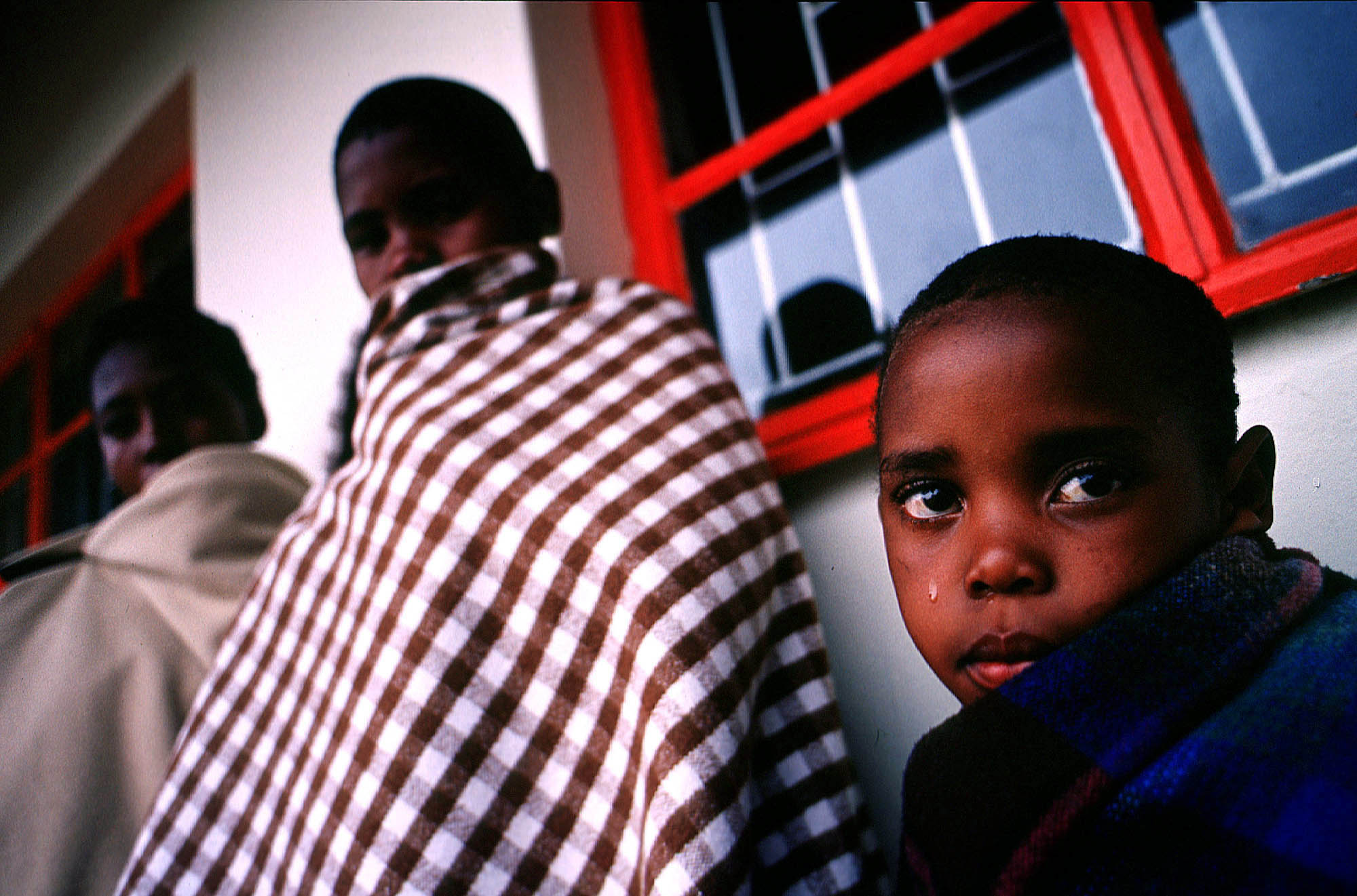HIV/AIDS Devestates a Nation - Lesotho

HIV/AIDS Devestates a Nation - Lesotho
Story & photographs by Andy Rain
Pronounced Le- soo-too, Lesotho on the surface is a quiet, out of the way mountain region, a ‘Kingdom in the Sky’, as the locals call it. It is one of those countries in the world that you probably haven't heard of and couldn't point out on a map. But in the coming years, small southern African nations like Lesotho may become well known for all the wrong reasons. AIDS.
Across the Mokhele Mountains in southwestern Lesotho I am shocked by what I find in the rural communities of this rugged highland country. AIDS is killing people like none of us can imagine. Moreover young children, their parents already dead from AIDS are being left alone to fend for themselves. Only 3 years ago 11% of Lesotho’s population were HIV positive. Now the figure is a staggering 31%. “People around us are dropping like flies”, says Sisinyane Mahoele, 73, from Matsa village, Mapheteng District, who now look after her daughters kids. Her daughter died of Aids in February. “I am not able to feed Thabo and Thabelo, who are just 9 and 4.
“I’m worried that there will be no one to look after them when I am gone”.
Only a couple of decades ago the people of Lesotho had money in their pockets. There was a genuine atmosphere of prosperity and hope in the community. The men had plenty of work in the mines in nearby South Africa. But during the 90's the need for labour in the mines decreased and subsequently thousands of Lesotho men were made redundant.
And so they came home fearful of the future. The colourful brick homes that surround Maseru, Lesotho's capital were built from money earned in South African mines. But money was the only thing being passed to the wives of these labourers. HIV was being brought back too. Countless wives became sick and began to die, Their husbands, whose immune systems are stronger followed a few years later, leaving their kids alone with no money and little hope of an education.
And so the story goes on. Young mothers abandoned their children for fear that they have the disease. Kathleen was found outside the T. B Ward of the Queen Elizabeth 2 Hospital in Maseru, the capital of Lesotho. She like many other newborns were given the name ‘the lost one’, by hospital staff. Thato was found in an open pit toilet ten feet down lying amongst festering excrement until his screams brought people to him. Lentle was found in a forest with open wounds across her body, where animals and insects had eaten away at her. Thabeng was found lying at the foot of a tree. These children were just months old when they were rescued by passers by. They are now being cared for and have a second chance at life at The Beautiful Gate Home for Abandoned and HIV affected kids in Maseru, Lesotho’s main town.
In the many villages across the mountains the numbers of child headed households due to AIDS continues to rise. UNICEF (the United Nations Children’s Fund estimates that there are some 68,000 orphans in the country, but the rural areas are difficult to access so that figure is likely to be much higher. In Pokane Village, 35 Km’s from Maseru I meet Nthabiseng Shakhne, 16, her sister Ntoatse, 12 and her brother Moeketsi, 8. They live in a beautiful misty mountain setting, where sheep and donkeys roam the rocky slopes. Their stone house is modest with a small kitchen, living room and bedroom. But in this part of the world they would consider themselves lucky to have such a dwelling.
There is no food though, and more to the point, no parents. Their father was killed in a car accident 15 years ago. Their mother died of Aids last year. “Its really difficult”, Nthabiseng explains. As tears fill her eyes. “ There is no one to take care of us” Ntoeste wipes tears from her eyes, hiding her face under her blanket. Moeketsi is silent. “If a miracle happens I would like to see myself working at a school”, Nthabiseng goes on. But relatives have taken their land. The only thing they have left is the house that their father worked so hard for in the mines. The extended family would always attend to the needs of children in the past but as poverty has tightened its grip in the rural community’s people no longer have the capability to feed another mouth.
The war on terrorism and the Iraqi issue will likely continue to occupy the minds of world leaders for the time being and so AIDS and the children of southern Africa once again will remain left in the dark. Poverty and AIDS is ravaging the very fabric of society across southern Africa and it is the kids of this region who are left to pick up the pieces. Robbed of normal childhood, they are left alone, without guidance and without love.
End.


